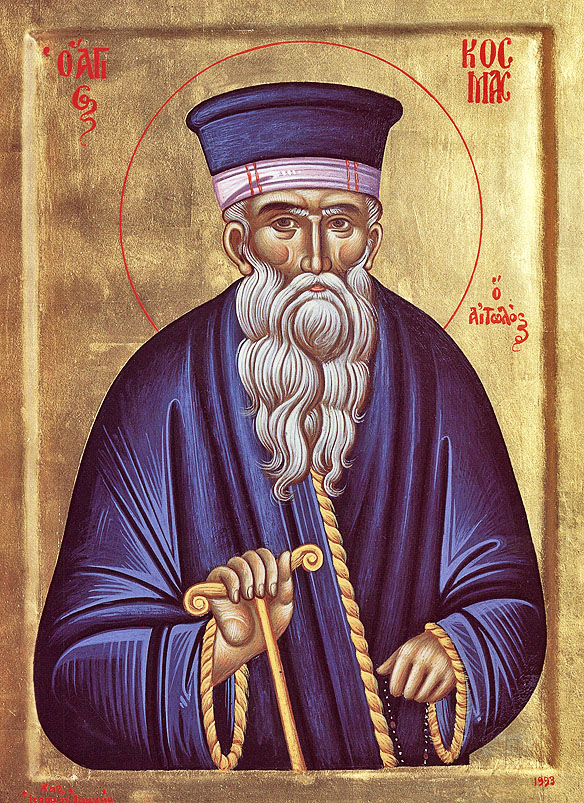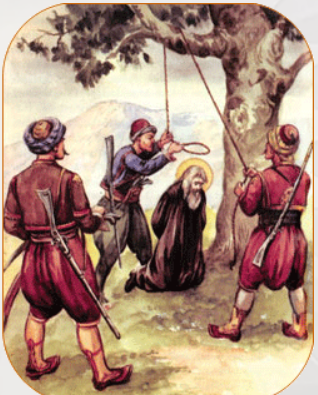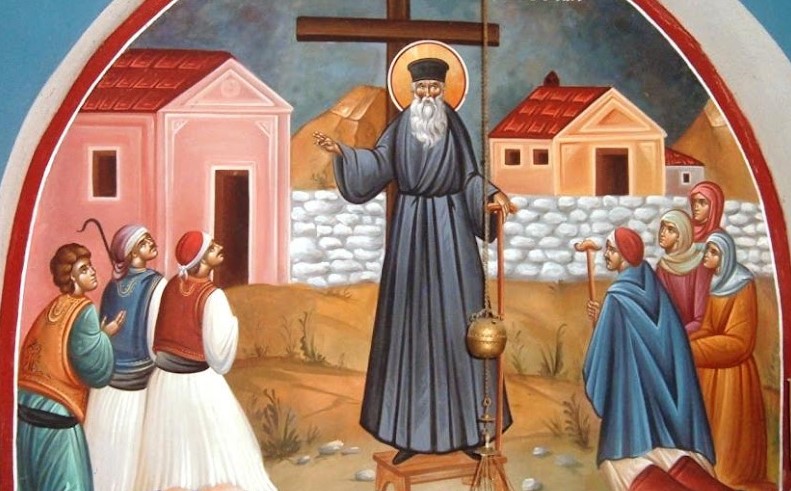Saint Cosmas of Aitolia goes by many titles – Christian saint, priest, monk, popular preacher and educator. To mark the day of his execution on August 24th, 1779, we take a look at why these roles perfectly encompass the man Cosmas was.
Early Life:
Cosmas was born in Aitolia, Greece, and received his elementary education in his home province.
After spending some time as a teacher, he entered the theological academy on Mount Athos then headed by Eugerios Voulgares, one of the eminent Greek educators of the eighteenth century.

Shortly afterward, Cosmas became a member of the monastery of Philotheou (one of the twenty monasteries of Mount Athos), where he was later ordained as a priest.
Educating the masses:
Around 1760, Cosmas left the monastery for Constantinople, where he received the blessing of the Patriarch Seraphim II.
He began preaching in the enslaved capital, followed by Nafpaktos, Mesolonghi, and other areas, returning to Constantinople in 1774. With the permission of the new Patriarch Sophronius II, the Saint resumed his apostolic task.
What alarmed the Ottoman authorities was the great popularity enjoyed by Cosmas.
His honesty and direct manner of preaching in the language of the people, his reputation for sanctity, his frequent visits to remote villages and hamlets, and his total disregard for material possessions caused hundreds, sometimes thousands, of men and women to follow him while he traveled from village to village.
Cosmas preached a gospel of love and concern for the fair and just treatment of women and children.
In addition, he laid great stress on education, founding ten secondary schools and over two hundred elementary schools. Often he secured both teachers and funds for these schools.
He believed that an educated person would be able to rise to a higher standard of moral and ethical living and thus be better prepared to resist the temptation, due to discrimination as well as social and economic pressures, to convert to Islam.

Execution and Legacy:
Cosmas was admired and even feared by many Turks, and hated by many Jews. They spread unfounded accusations against him and slandered him to Kurt Pasha, to whom they offered money if he would put Cosmas to death.
Kurt Pasha conspired with the hodja of the village of Kolikontasi in Albania to set a trap for Cosmas. On the pretext that the Pasha wished to see him, they took Cosmas to a remote spot and hung him on August 24th, 1779.
His murderers stripped his sanctified body, tied a stone to it, and threw it into the river. The local Christians looked for his corpse, but could not find it.
In a miraculous manner, it rose to the surface and was pulled out by Father Markos, the priest of the All-Holy Theotokos of the Presentation Monastery, which is near Kolikontasi, and buried it at the back of the sanctuary.
He was quickly established in the mind of the people not only as a martyr but as a true apostle.
Cosmas can truly be credited with effecting enormous changes in education and in the moral behavior of the people of western Greece and southern Albania.

